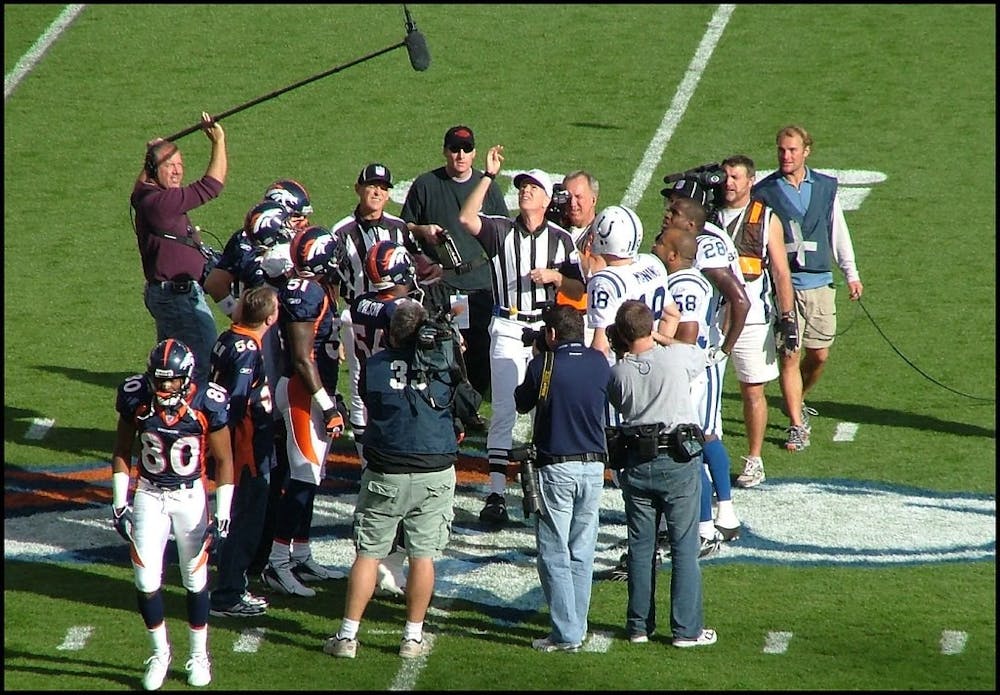Every year the National Football League makes changes to its complex set of rules to make the playing experience more enjoyable, ethical and fair to players and fans. From player targeting calls to the loss of a down after a forward pass, the NFL is constantly making tweaks to the way that games are played. However, recently there has been consistent critique and distaste of one particular set of rules — overtime game policy.
An NFL game goes into overtime if both teams are tied in total points scored at the end of regulation time. Arguably the most crucial moment of overtime is the coin flip. The team that wins the toss has the choice of whether to kick the ball away or receive the ball.
Any team that has some level of confidence in their offense will elect to receive the ball upon winning the coin toss because if they score a touchdown on their first drive, they win the game automatically.
The controversy surrounding these overtime rules is that the offense of one team can win the coin toss and effectively win the game without giving the opposing offense a chance to drive. As a result, the NFL has caught some flak after some recent games and seasons, as it often doesn’t give a fair chance to one of the teams.
A prime example of this controversy was in the 2021 AFC divisional game between the Kansas City Chiefs and the Buffalo Bills.
It was a hard-fought game, and the Chiefs came back to score a field goal with just 13 seconds left on the play clock in the 4th quarter, forcing the game into overtime. The Chiefs ended up winning the toss and elected to receive the ball.
In just eight plays, franchise quarterback Patrick Mahomes led a 75-yard drive to score a touchdown and effectively end Buffalo’s playoff hopes, as well as their hopes of making it to Super Bowl 56. However, despite the legitimacy of the Kansas City drive, the Bills offense did not have the same chance to showcase their ability to drive down the field. Instead, due to the flip of a coin, they inevitably lost the game.
The Bills had a stellar season and saw significant improvements from their offensive capability under the leadership of quarterback Josh Allen and increased cohesivity of their secondary defensive effort. The loss against the Chiefs was devastating to many of the players like Stefon Diggs and Allen, who had lost to Kansas City in the AFC Championship game just one year prior.
The overtime rules seem to favor the team that wins the coin toss. The rationale seems to be that both teams should have a fair shot at being able to score in overtime instead of losing the game on one drive without having the chance to prove themselves on opposite sides of the ball.
A rule change would allow for both teams to have a chance at scoring instead of implementing the “sudden death” rules that grant a win to the first team that scores a touchdown.
Removal of the sudden death system would mean that both teams would get the chance to play their offenses and the game would be decided based on the final score at the end of overtime regulation. If both teams are still tied for points at the end of the first overtime quarter, then both teams will play another overtime quarter until one team has more points than the other at the end of the quarter.
While the current state of overtime rules has NFL fans eager for a change, there has been no evidence that the NFL is moving to make a significant change to the integral rule anytime soon. If strides toward change are being made, then the process will likely be long and effects will not be seen for several seasons to come.
For the time being, fans and players will have to deal with a system that gives an advantage to the stronger offensive team. For an organization that takes pride in their commitment to fairness, the NFL has an issue on their hands. It’s up to them to decide whether or not to take action.




